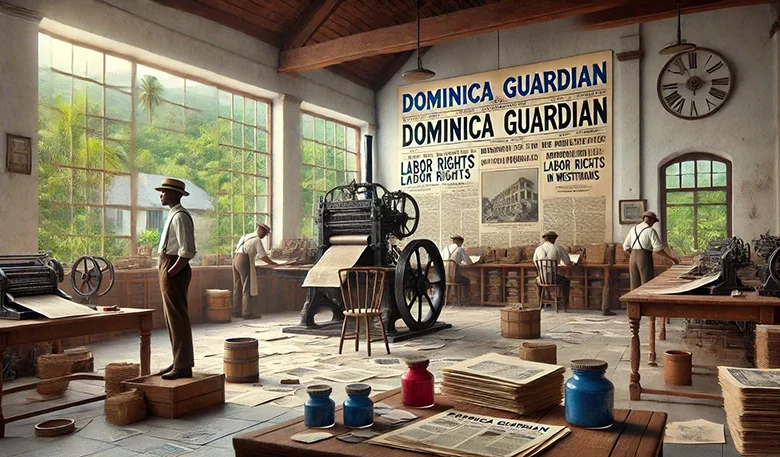Dominica Guardian – Newspaper

The Dominica Guardian was one of Dominica’s earliest and most influential newspapers, first published in 1893. It was later merged with the Dominica Tribune in 1924 under the ownership of Cecil Edgar Alan Rawle. The paper provided a platform for discussing political reforms, labour issues, and the growing movement toward independence from British colonial rule.
As part of Dominica’s burgeoning press scene, the Dominica Guardian was instrumental in promoting discussions on governance, economic justice, and labour rights. By the early 20th century, it became one of the island’s most widely read newspapers, helping inform and mobilize the public on important political matters. The Dominica Guardian was part of the broader landscape of Caribbean newspapers that contributed to the region’s nationalist movements and demands for social reform.
Historical Significance of the Dominica Guardian
The Dominica Guardian was known for its coverage of key events in Dominica’s political development, such as the Bayfront Strike and discussions on the West Indies Conference. Through its editorials and news stories, the newspaper played a key role in promoting the national dialogue around independence and labor movements, often providing a voice for marginalized groups.
As part of a tradition of press freedom, the Dominica Guardian was an essential platform for advocating for the rights of workers, women, and citizens who sought representation in the government. It helped to lay the groundwork for labour movements and political reforms that would eventually lead to Dominica’s independence.
Legacy and Contribution
Though it ceased publication in the early 20th century, the Dominica Guardian’s legacy remains significant as a pioneering newspaper that helped shape public opinion during a crucial period in Dominica’s history. Its role in advocating for reforms and providing a forum for debate has left a lasting mark on the island’s political and social landscape.




